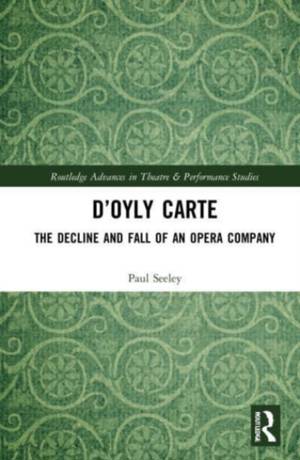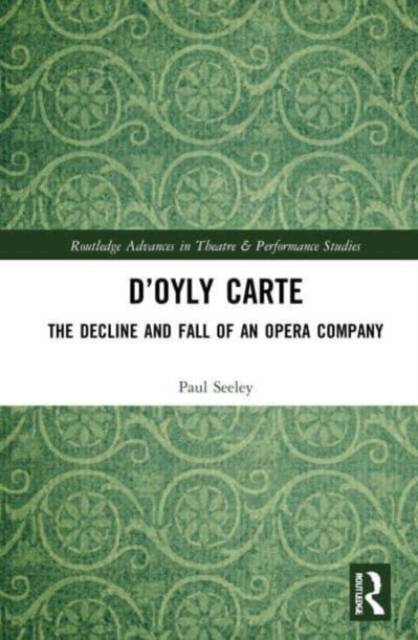
- Afhalen na 1 uur in een winkel met voorraad
- Gratis thuislevering in België vanaf € 30
- Ruim aanbod met 7 miljoen producten
- Afhalen na 1 uur in een winkel met voorraad
- Gratis thuislevering in België vanaf € 30
- Ruim aanbod met 7 miljoen producten
Omschrijving
This book considers and discusses aspects of the management of the D'Oyly Carte Opera Company in the twentieth century since the death of its founder Richard D'Oyly Carte, and concentrates on key events that contributed to its demise in 1982.
In this book, Paul Seeley follows the analytical model that proposes no single factor triggered the collapse, but rather several, both external and internal. In the case of an opera company the external factors may include public taste and market forces, but more significant are the internal factors such as the management decisions taken in response to external factors and how these compare with the original artistic aims, aspirations and business models of the founder. This is a study by someone with close observation of the administration; at the 1982 demise, Seeley was assistant to the company manager, having earlier served on the music staff.
The book is a must-read for music historians, theatre historians and arts-management professionals; as an uncompromisingly critical history of the D'Oyly Carte Opera Company it is designed to serve a wider public, not just the Gilbert and Sullivan opera specialist, but anyone keen to debate the desirability of private or public sponsorship of the performing arts.
Specificaties
Betrokkenen
- Auteur(s):
- Uitgeverij:
Inhoud
- Aantal bladzijden:
- 210
- Taal:
- Engels
- Reeks:
Eigenschappen
- Productcode (EAN):
- 9780367610579
- Verschijningsdatum:
- 31/05/2023
- Uitvoering:
- Paperback
- Formaat:
- Trade paperback (VS)
- Afmetingen:
- 156 mm x 234 mm
- Gewicht:
- 331 g

Alleen bij Standaard Boekhandel
Beoordelingen
We publiceren alleen reviews die voldoen aan de voorwaarden voor reviews. Bekijk onze voorwaarden voor reviews.








